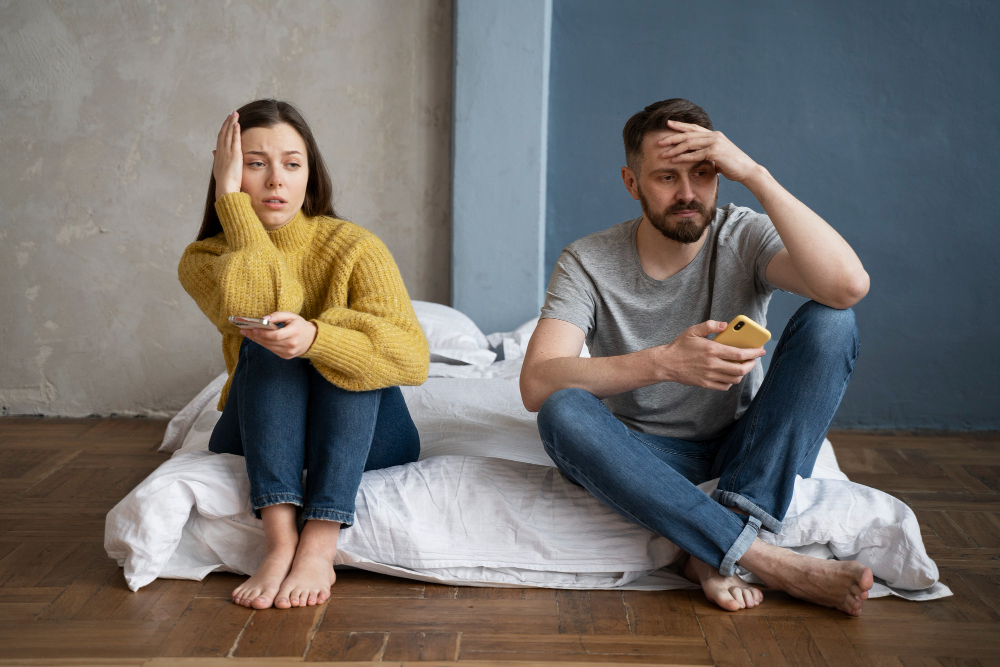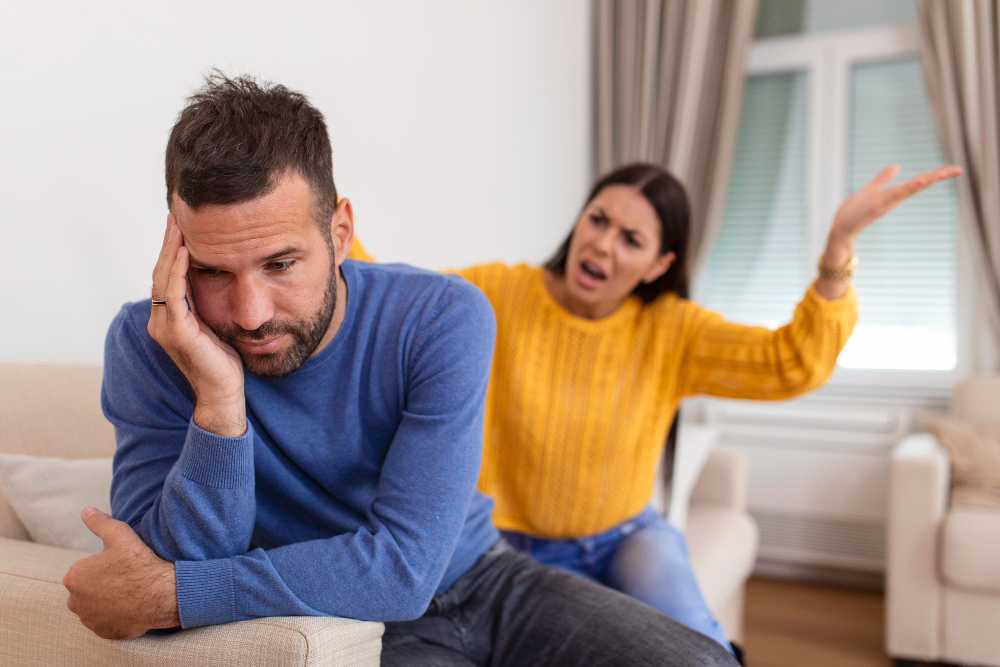Relationships can be incredibly rewarding, yet they are not without challenges. Even the strongest partnerships face moments of misunderstanding, conflict, or emotional distance. When these issues start affecting your daily life, work, or personal well-being, seeking support is a proactive and healthy step. Couples counseling services in Gurgaon and online provide a safe space where partners can communicate openly, understand each other better, and work toward building a stronger, healthier relationship.
You might wonder: should you choose counselling or therapy? While both help improve relationships, they serve slightly different purposes. In this blog, we’ll explore the nuances, benefits, and how to decide which path is right for you.

What Are Couples Counselling Services?
Couples counselling services focus on helping partners address specific challenges in their relationship. These may include communication breakdowns, trust issues, intimacy concerns, or navigating life transitions. A counsellor acts as a neutral facilitator, helping both partners communicate clearly, resolve conflicts, and develop practical strategies for a healthier partnership.
In Gurgaon, couples have access to both in-person and online counselling for couples in India, making it easier to seek support without worrying about schedules or travel. Online couples therapy is particularly beneficial for couples living in different cities or countries, ensuring consistent support regardless of location.
Benefits of Couples Counselling Services
- Improved communication: Learn active listening, expressing needs effectively, and reducing misunderstandings.
- Conflict resolution: Acquire tools to handle disagreements calmly and constructively.
- Rebuilding trust: Recover emotional safety in the relationship after betrayals or misunderstandings.
- Emotional support: Receive guidance from a neutral professional in a safe environment.
- Enhanced intimacy: Understand each other’s emotional needs and strengthen connection.
Many couples report that even a few structured counselling sessions can dramatically reduce conflict, improve emotional connection, and increase satisfaction in their relationship.
What Is Couples Therapy?
While counselling often addresses immediate concerns and skill-building, couples therapy delves deeper into underlying emotional patterns, behavioral cycles, and personal histories that affect the relationship. Therapy can help partners understand how past experiences—like family dynamics or previous relationships—shape their interactions today.
When Couples Therapy Is Most Helpful
- Persistent conflicts that don’t improve despite efforts.
- Emotional detachment or lack of intimacy.
- Repeated negative patterns, such as criticism, defensiveness, or withdrawal.
- Complex issues, including trauma or mental health challenges that affect the relationship.
Therapy is often longer-term and may include individual sessions alongside couple sessions to explore personal triggers, emotional wounds, and deeper psychological patterns.
Differences Between Couples Counselling and Therapy
Choosing between counselling and therapy depends on your relationship’s needs. Many couples start with counselling to address immediate issues and later explore therapy for deeper emotional work.

Common Issues Addressed in Couples Counselling Services
Couples face a wide variety of challenges that may prompt them to seek professional support:
- Communication breakdowns: Misunderstandings, frequent arguments, and avoidance of discussion.
- Trust and betrayal: Infidelity, dishonesty, or broken promises require structured support to rebuild trust.
- Life transitions: Marriage, career changes, relocation, or parenthood often create stress and strain.
- Intimacy concerns: Physical or emotional distance, sexual challenges, or lack of emotional connection.
- Family and cultural pressures: Balancing expectations from extended family, societal norms, or cultural differences.
- Recurring conflict patterns: Criticism, defensiveness, stonewalling, and other behaviors can create long-term strain.
By addressing these issues early, couples can prevent escalation and foster healthier, more resilient partnerships.
Case Examples: Real-Life Reflections
- Raj and Meera, a couple in Gurgaon, struggled with constant arguments about household responsibilities. After six counselling sessions, they learned to divide responsibilities fairly and communicate without blame.
- Sanjay and Priya, living in different cities, found online couples therapy effective in discussing long-distance challenges and maintaining emotional connection.
- Anita and Rohit sought therapy after repeated patterns of criticism and defensiveness. Through guided sessions, they learned to identify triggers, express vulnerability, and respond empathetically.
These examples highlight how structured support allows couples to see patterns, develop coping strategies, and improve mutual understanding.
Exploring Methods in Couples Counselling and Therapy
- Cognitive Behavioral Therapy (CBT): Helps couples identify negative thinking patterns and replace them with constructive communication.
- Gottman Method: Focuses on building friendship, managing conflict, and creating shared meaning.
- Emotionally Focused Therapy (EFT): Addresses attachment needs and fosters emotional bonding.
- Solution-Focused Counselling: Emphasizes practical strategies and achievable goals rather than dwelling on the past.
Choosing a therapist who specializes in these approaches ensures a method tailored to your relationship’s specific challenges.
Online Counselling for Couples in India
Online platforms offer online couples therapy, which is as effective as in-person sessions when conducted by licensed professionals. Advantages include:
- Convenience: Sessions can be scheduled around busy work or personal schedules.
- Privacy: Couples can attend sessions from the comfort of their home.
- Accessibility: Those living far from urban centers, including Gurgaon, can access expert guidance.
Research shows that online couples counselling helps improve communication, reduce conflict, and strengthen emotional connection.

Step-by-Step: What to Expect in Couples Counselling Services
- Initial assessment: Understanding the couple’s history, relationship challenges, and goals.
- Goal-setting: Collaboratively establishing objectives for sessions.
- Skill-building: Learning communication techniques, conflict resolution strategies, and empathy exercises.
- Homework and practice: Applying learned strategies in daily life.
- Review and adjustment: Evaluating progress and refining approaches.
Knowing what to expect helps couples feel more comfortable and engaged in the process.
Myths vs. Facts About Couples Counselling Services
Myth 1: Counselling is only for couples in crisis.
Fact: Couples counselling can improve any relationship, even those without major conflicts.
Myth 2: Therapy takes years to work.
Fact: Many couples see improvements within 4–10 sessions.
Myth 3: Online counselling is less effective.
Fact: Evidence supports online therapy’s effectiveness when conducted by qualified professionals.
How to Choose the Right Professional
Finding the Best Marriage Therapy Doctors in Gurgaon or an online specialist requires careful consideration:
- Credentials and experience: Licensed therapists with proven experience in couples counselling.
- Specialization: Some focus on communication, others on trauma or intimacy challenges.
- Therapeutic approach: Determine whether the therapist uses CBT, Gottman Method, or EFT.
- Comfort and rapport: Feeling safe and understood is essential for progress.
Take the First Step Today
Investing in your relationship can transform your daily life. Core Mind Wellness provides expert couples counseling services, available in Gurgaon and online across India. Through evidence-based strategies, couples gain tools to communicate effectively, manage conflicts, and deepen emotional intimacy. Call or WhatsApp today to schedule your confidential session. Experience the benefits of structured support for your relationship.
FAQs
Q1: Can couples counselling prevent breakups?
Early intervention can improve communication and emotional connection, lowering the risk of separation.
Q2: How long is a session?
Typically 50–60 minutes, with weekly sessions initially.
Q3: Is online counselling confidential?
Yes. Secure platforms and ethical guidelines ensure privacy.
Q4: Can one partner attend alone?
Yes. Individual sessions can complement couple counselling to explore personal triggers.
Q5: How do I know if counselling or therapy is better?
Counselling is ideal for situational challenges; therapy is recommended for deeper patterns or trauma.
Q6: Can cultural or family pressures be addressed?
Absolutely. Therapists guide couples in navigating societal expectations without compromising the relationship.
